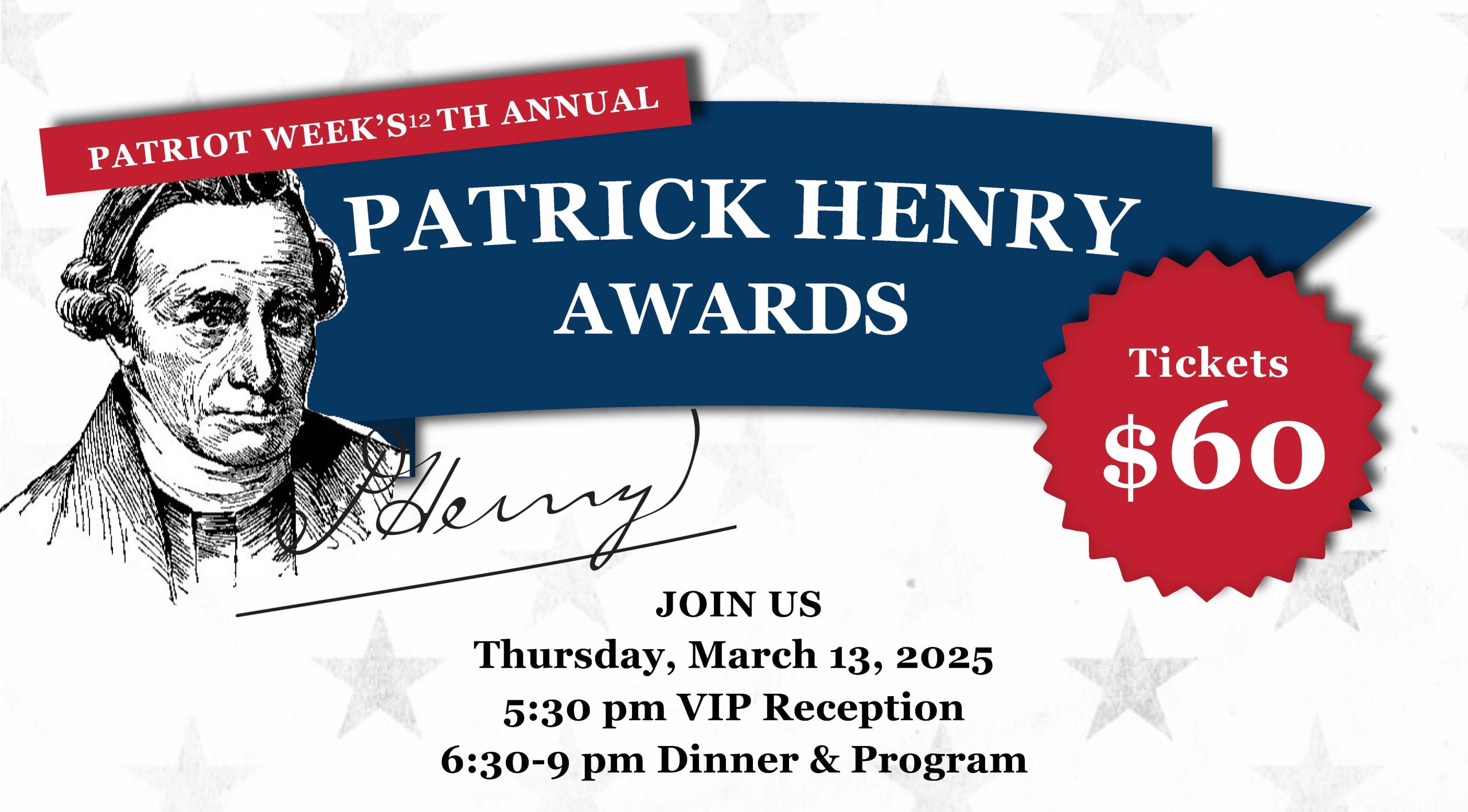
12th Annual Patrick Henry Awards & Dinner
MORE INFORMATION TO COME
By Jack Miller
November 23, 2023
The first Thanksgivings in America were about celebrating survival. Spanish and French explorers set aside days to give thanks to the Almighty for protecting them in a strange and hostile land. The Pilgrims held their famous Thanksgiving feast of 1623 to praise God for their bountiful harvest. From there, George Washington and Abraham Lincoln issued proclamations for thanksgiving in the midst of terrible wars.
How did Thanksgiving develop from a practice of gratitude into an excuse for a long weekend off work, big meals with family, and sitting on the sofa watching football games? In part, because we are a prosperous and free country. Americans do not face the desperate conditions our forefathers did.
This year, we should see the holiday as an opportunity to quit complaining about all the things that are wrong in our country and the world. Instead, it’s time to think about all the things we should be thankful for.
To start, we can be thankful that we don’t have to fight for survival. When the Pilgrims held the first Thanksgiving, it wasn’t certain everyone in the Plymouth Colony would live through the harsh winter. When General Washington instructed the Continental Army to have a thanksgiving holiday to celebrate the American victory at Saratoga, victory over the British Empire wasn’t guaranteed. Because of their sacrifices, we are living in the most wonderful, freest nation to ever exist. The unparalleled opportunities American citizens have were hard-won, and we should be conscious of our immense debt of gratitude.
We shouldn’t minimize the very real problems America faces, but we can be thankful for all that is good about our country. As war rages in Ukraine and Israel, we need to remember that America is a bulwark for freedom in a world threatened by tyranny. Too many forget how good America is; they wrongly believe America is fundamentally unequal or “systemically racist.”
But we can be thankful that America is founded on principles of human dignity and universal freedom. We can also be thankful for how far we have progressed toward achieving the promise in our Declaration of Independence that all people “are created equal,” and that all have the same rights. Even though we haven’t yet fully lived up to our foundational principles, we should have gratitude for the fact that they exist, how far we have come in realizing them, and that we are continuing to work toward their achievement. No other country has fought so hard for such a beautiful vision of justice.
We can complain 364 days a year, but Thanksgiving is a time to stop complaining. It is a time for reflection and gratitude. And it is a time to begin thinking about what we can do to make things better. A wise person once said, “What you see depends on where you are standing.” So maybe it’s time to change our position and see something different, and in the process, see a way to help make a positive change.
One way we can do this is by doing a better job telling America’s story in the classroom—and celebrating it throughout our society. At a recent event in my honor, with several hundred people there, we began the evening with the Pledge of Allegiance to our flag and country. One man in attendance said, “Wow, I haven’t said that in 20 years, and I almost forgot the words.”
One of the best ways to express our gratitude is by teaching our kids and grandkids about what makes America great. We should tell them the story of the first Thanksgiving and the miracle of the American Revolution. We should introduce them to great Americans like Abraham Lincoln and Frederick Douglass. We should take them to battlefields and monuments to show them that freedom comes with a great price.
This Thanksgiving, let’s all give thanks, not just for mere survival or for a bountiful harvest, but for living in a nation that is blessed with “liberty and justice for all,” as the Pledge of Allegiance concludes. Yes, we are not perfect and will never be. But we should have great gratitude for everything America has achieved so far, and what we will achieve in the future with a better understanding of our shared principles, along with a little hard work.
Jack Miller is the founder and chairman of the Jack Miller Center, a 501(c)(3) organization dedicated to reinvigorating education in America’s founding principles and history, from K-12 through college.

MORE INFORMATION TO COME
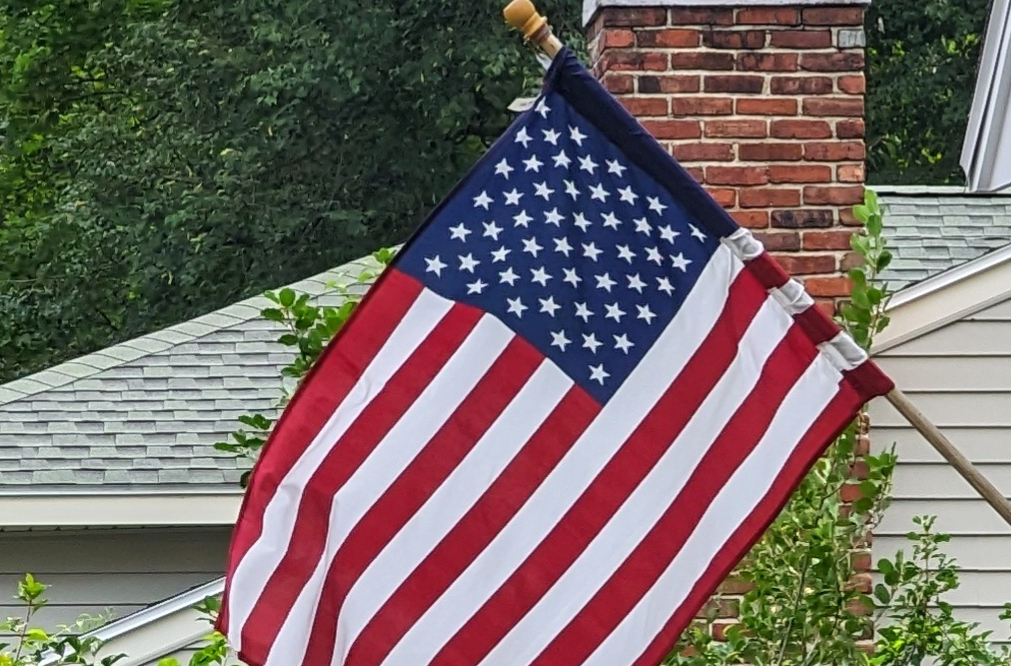
By Mike Sabo With new institutes emerging at colleges and universities in Florida, Ohio, Utah, Tennessee, North Carolina, Texas, and elsewhere, civics education may be
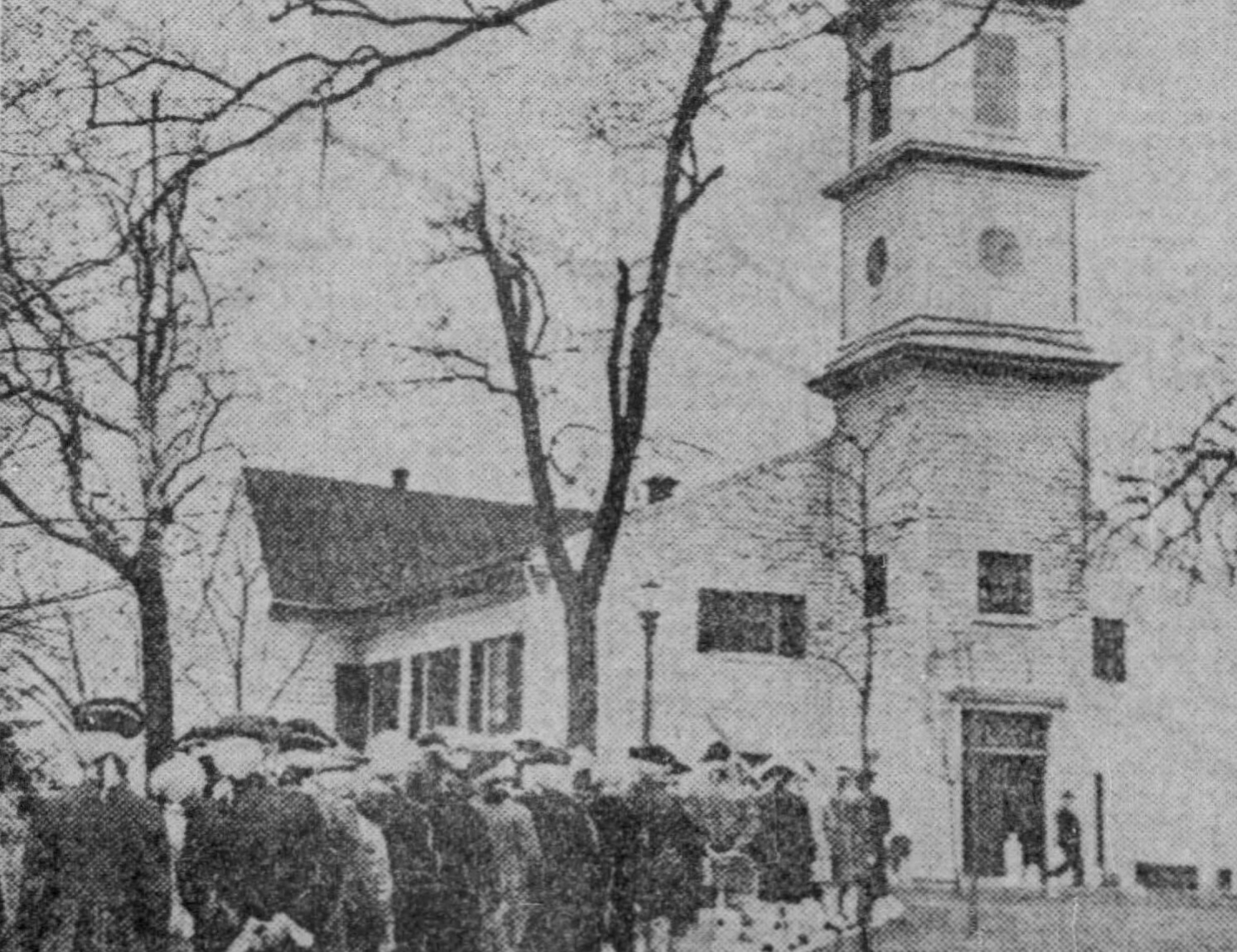
By John A. Ragosta On March 23rd in 1775, Patrick Henry rose at St. John’s Church in Richmond, Virginia, to urge his countrymen to arm
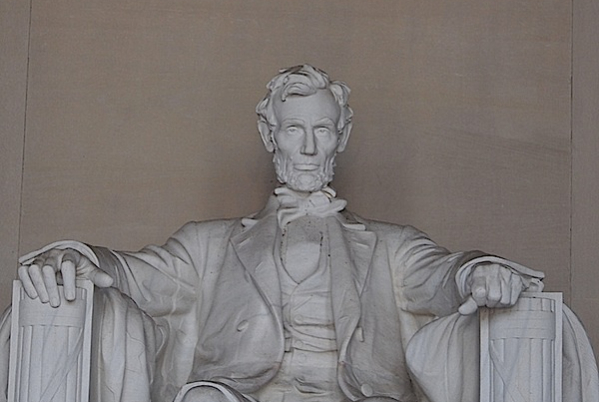
By Brian Matthew Jordan One hundred and fifty-nine years ago this Sunday, a 26-year-old white supremacist and Confederate sympathizer named John Wilkes Booth pointed a
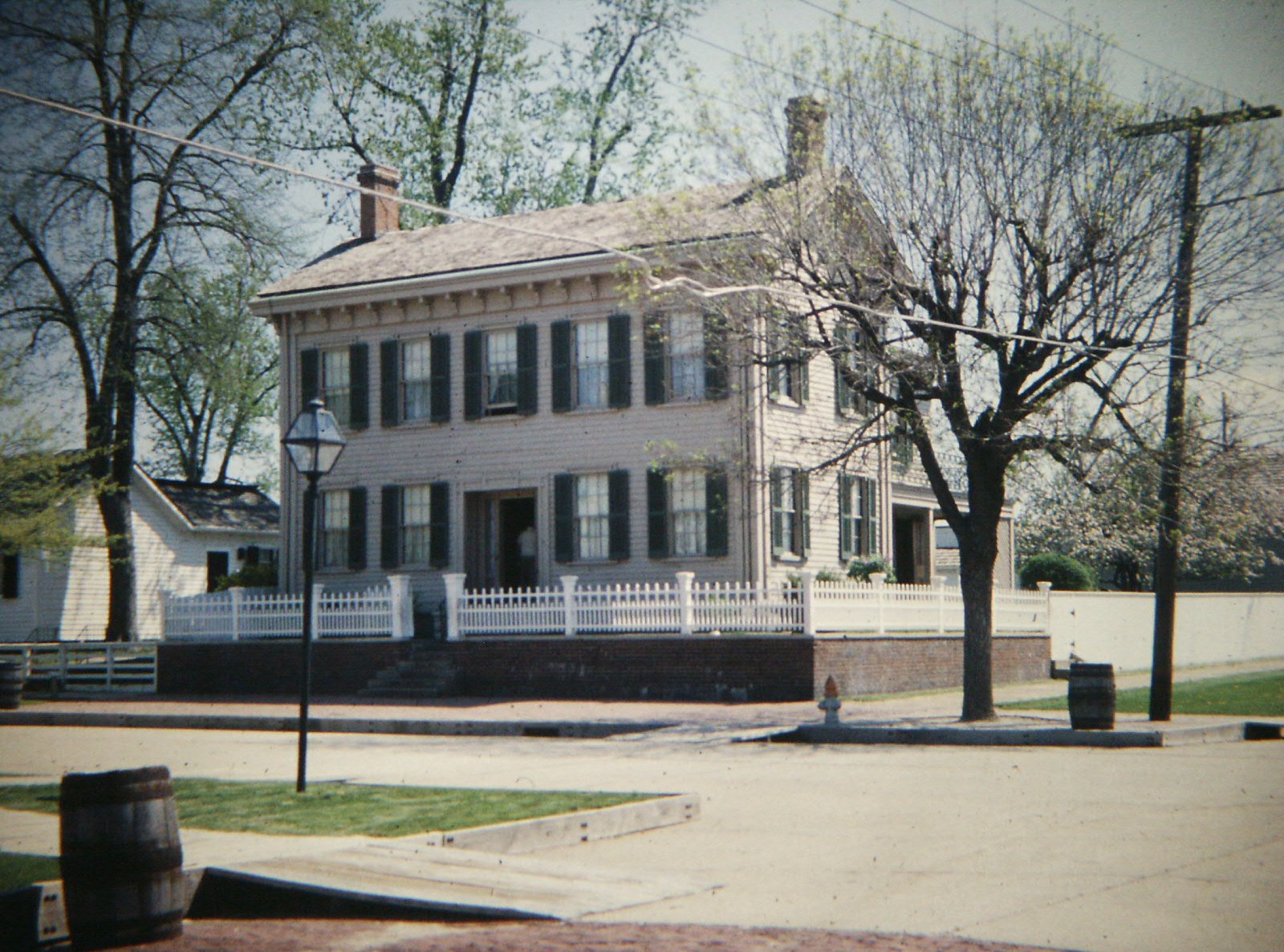
By Jonathan W. White Historians and the general public regularly rank Abraham Lincoln as America’s greatest president. There is little doubt that he is widely

The Patriot Week Foundation achieved its 501(c)(3) status in December 2012 and has moved forward by building a sustainable, nonpartisan organization. Currently staffed with an Operations Manager and Education Consultant, the Patriot Week Foundation will be adding to its complement of talent shortly.
This unique, historically grounded, non-partisan approach is desperately needed in our toxic political environment. In no small measure, the fate of the nation depends on it.
Get in Touch
Fill out the form, our team will get back to you ASAP.